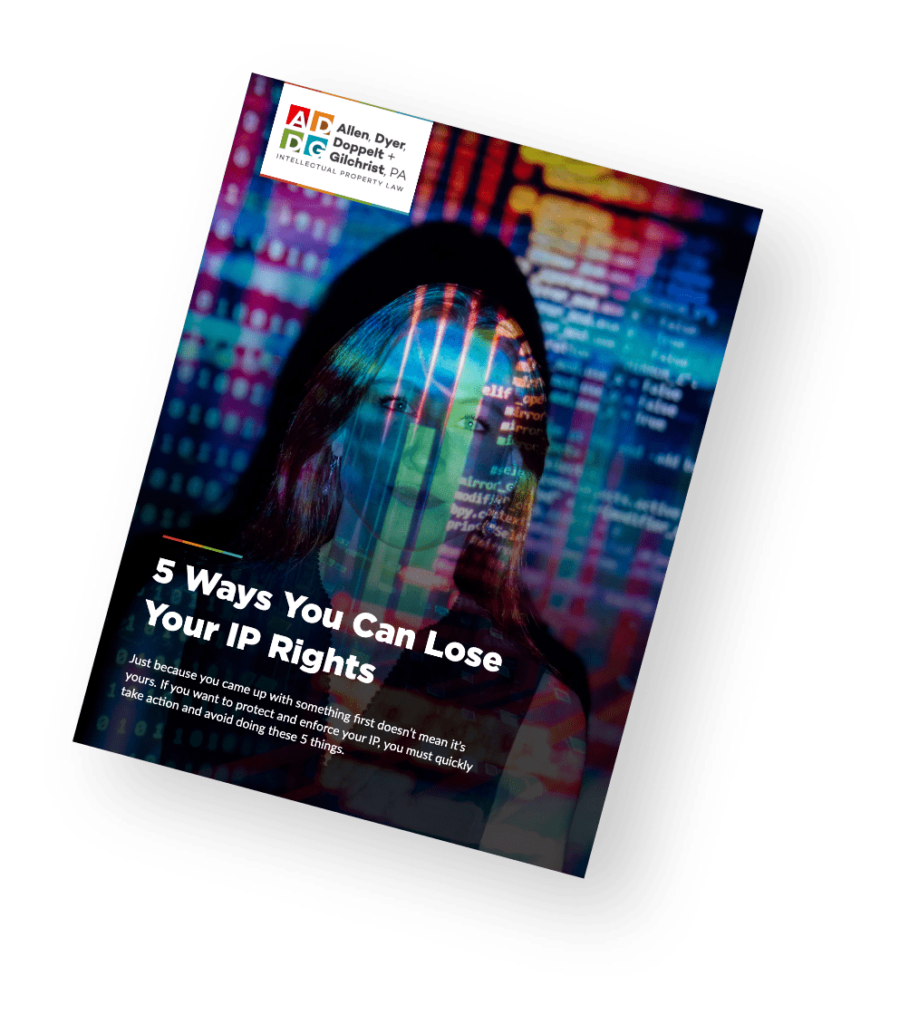Intellectual property (IP) infringement poses a significant threat to creators and innovators who rely on the protection of their valuable IP assets and trade secrets. When someone uses intellectual property belonging to another without permission, IP owners should have at least a surface-level understanding of the available remedies to address and rectify the infringement. In this article, we will explore the concept of intellectual property infringement, discuss how to halt unauthorized use, and examine some of the various remedies for IP infringement.
Although we strongly recommend consulting with an IP attorney in case of infringement, it can be helpful to know about the steps involved in bringing an infringing party to heel.
What is Intellectual Property Infringement?
Intellectual property infringement occurs when someone unlawfully uses, reproduces, distributes, or exploits another person’s, company’s, or organization’s protected intellectual property, such as copyrights, trademarks, and patents, without obtaining proper authorization. This unauthorized use can take many forms, including copying and distributing copyrighted content, using a similar trademark to confuse consumers, or manufacturing and selling patented inventions without permission.
To establish intellectual property infringement, the IP owner must demonstrate that they possess valid intellectual property rights and that the alleged infringer has engaged in activities which violate those rights. Infringement cases typically involve a thorough examination of the relevant IP laws, including the Copyright Act, Trademark Act, or Patent Act, depending on the type of intellectual property at stake.
How Do I Stop Someone From Using My Intellectual Property?
If you discover that someone is using your intellectual property without permission, taking immediate action is essential. Here are initial steps you can take to analyze your rights, inform others of your rights and potentially halt unauthorized use:
- Consult an IP Attorney: Seeking legal counsel from an experienced IP attorney is crucial in evaluating the strength of your case, understanding your rights, and determining the best course of action. An attorney can guide you through the process of enforcing your intellectual property rights effectively. They will assess the evidence, advise on the appropriate legal actions, and help you strategize the most effective way to stop the infringing activities.
- Cease and Desist Letter: A cease and desist letter is an initial formal communication sent to the infringing party, formally notifying them of your rights and demanding that they cease the infringing activities. The letter may outline the legal basis for the claim and provide a deadline for compliance. It serves as an initial step to assert your rights, and in the best case scenario, may result in the infringing party voluntarily ceasing the unauthorized use. However, there are potential consequences to sending a cease and desist letter that should be considered.
- Litigation: Sometimes litigation is a viable option available to an IP owner in enforcing their rights and repairing damage resulting from infringement. Engaging competent and experienced counsel may be critical to success in an IP dispute, because experienced counsel can help you gauge the risk/reward of litigation.
What Are The Remedies For IP Infringement?
When intellectual property infringement occurs, there are various remedies available to the IP owner though litigation. These remedies aim to address the harm caused by the infringement, deter future violations, and provide appropriate compensation to the IP owner. The following are common remedies for IP infringement:
- Injunctive Relief: Injunctive relief is a court order that prohibits the infringing party from continuing the unauthorized use of the intellectual property. It aims to stop the infringing activities and prevent further harm to the IP owner’s rights. Injunctive relief can be temporary or permanent, depending on the circumstances of the case, and can act as a stop-gap in the time before final judgment on an infringement case. Injunctive relief can be a powerful remedy that preserves the IP owner’s rights and prevents further harm.
- Statutory Damages: Statutory damages may be available in both copyright and trademark infringement cases, depending on the facts and circumstances. These damages are predetermined amounts established by the statutes addressing copyright and trademark infringement, and may provide compensation to the IP owner without the need to prove actual damages. Statutory damages can act as a strong deterrent against infringement. The amount of statutory damages can vary depending on the willfulness of the infringement and other factors determined by the court.
- Actual Damages: In addition to statutory damages, IP owners can seek actual damages, which aim to compensate them for the specific harm suffered due to the infringement. Actual damages may include lost profits, the value of the unauthorized use, reasonable royalties and other measurable financial losses resulting from the infringement. Calculating actual damages may involve the examination of financial records, sales figures, and other relevant evidence, as well as the use of expert witnesses.
- Court Orders: Courts can issue a range of orders to remedy IP infringement, including the seizure, impoundment, or destruction of infringing products or materials. These orders are designed to remove infringing goods from the marketplace and prevent further unauthorized use. Court orders can also include requirements for the infringing party to provide an account of profits generated from the infringement or to disclose the sources of infringing products.
Speak With an Experienced IP Attorney
Intellectual property infringement can have severe consequences for creators and innovators. Understanding the concept of IP infringement, knowing how to stop unauthorized use, and being aware of the available remedies are crucial steps in protecting your rights.
Consulting with an experienced intellectual property attorney will help you navigate the intricacies of IP law, enforce your rights effectively, and safeguard your valuable IP assets. They can assess the merits of your case, guide you through the legal process, and ensure your rights are protected. An IP attorney can provide tailored advice on the most appropriate remedies, negotiate settlements, and represent you in federal court if necessary.
If you are concerned about or have questions about a possible infringement of your intellectual property, contact our office to schedule a consultation with one of our experienced IP lawyers today!
About the Author
Ryan Santurri is a Florida Board Certified Intellectual Property Law Attorney. He advises clients in the areas of intellectual property and related litigation involving patents, trademarks, trade secrets, copyrights and right of publicity.

Share This



